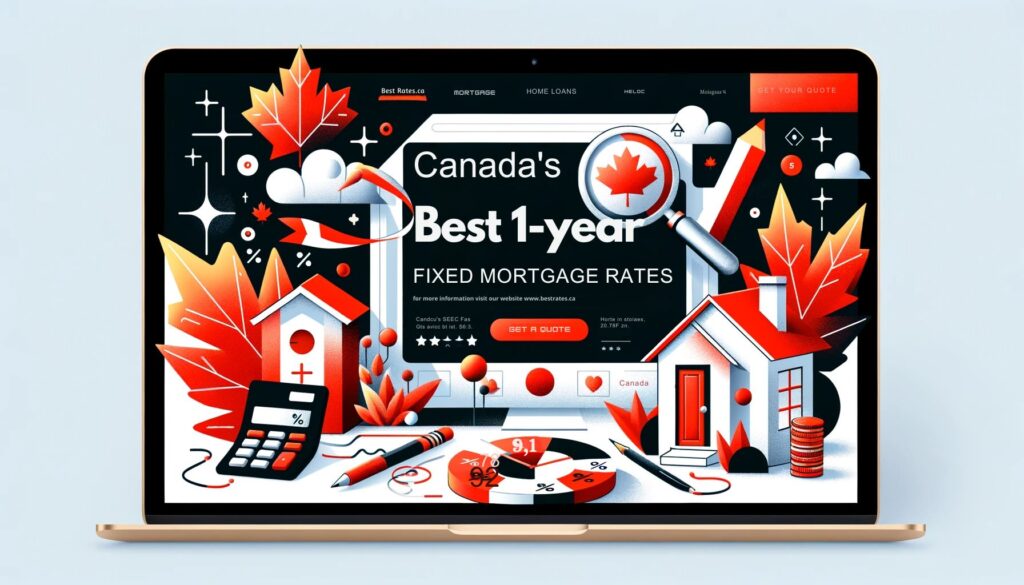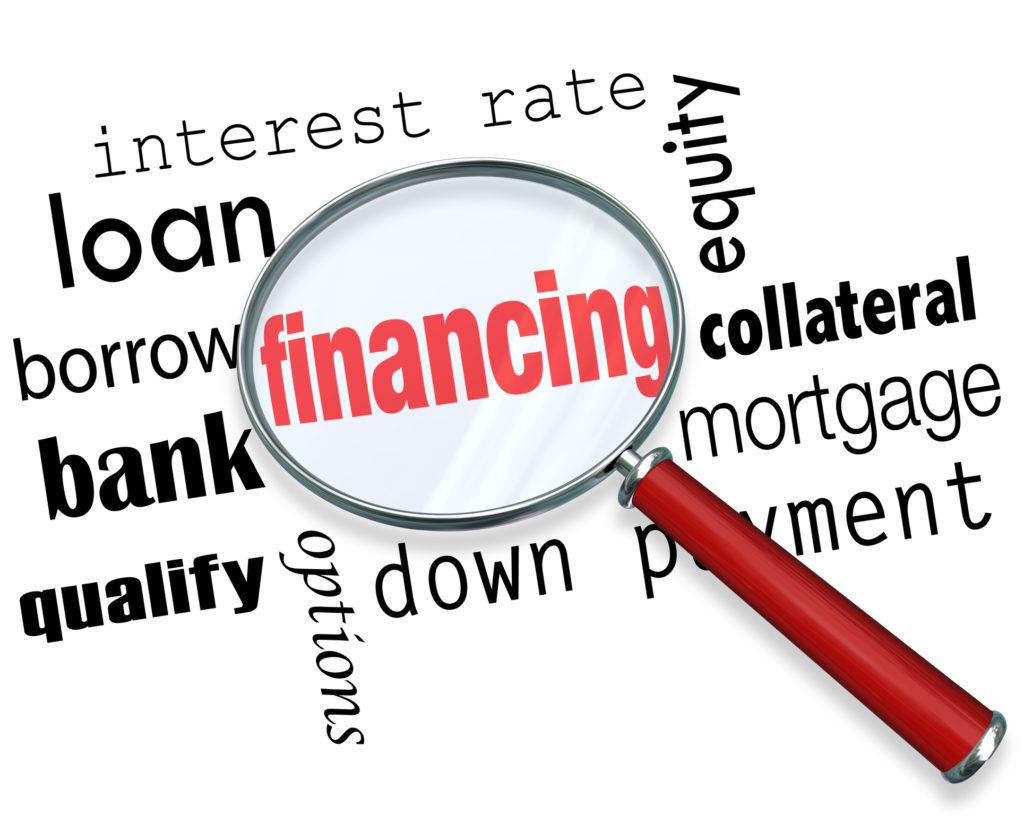When it comes to securing a mortgage, it’s crucial to understand the different options available to you. One popular choice is the 1-year fixed mortgage rate, which offers both advantages and considerations that need to be carefully evaluated. In this article, we will explore the concept of a 1-year fixed mortgage rate, how to find the best rates in Canada, the comparison between fixed and variable rates, and how to assess the impact of rate increases on a 1-year fixed mortgage.
What is a 1-year fixed mortgage rate?
Understanding the concept of a fixed mortgage rate
A fixed mortgage rate is a set interest rate that remains consistent throughout the term of the mortgage. This means that your monthly mortgage payments will not fluctuate, providing stability and predictability in your financial planning.
Advantages and disadvantages of a 1-year fixed mortgage rate
One advantage of a 1-year fixed mortgage rate is the potential for lower interest rates compared to longer terms, allowing borrowers to take advantage of favorable market conditions. However, it’s important to note that the short term also exposes borrowers to the risk of interest rate increases when it’s time to renew the mortgage.
Considerations for choosing a 1-year fixed mortgage rate
When considering a 1-year fixed mortgage rate, it’s essential to evaluate your financial goals, risk tolerance, and expectations for interest rate movement. Additionally, factors such as the Bank of Canada’s prime rate and current mortgage rates should be taken into account to make an informed decision.
How to find the best 1-year fixed mortgage rates in Canada

Exploring different lenders and their offerings
Researching and comparing offerings from various lenders is key to finding the best 1-year fixed mortgage rates in Canada. Each lender may have unique terms and conditions, so it’s important to consider multiple options.
Factors to consider when comparing 1-year fixed mortgage rates
Aside from the interest rates, borrowers should also look into prepayment options, flexibility in payment frequency, and any additional fees associated with the mortgage. These factors can significantly impact the overall cost and suitability of the mortgage.
Negotiating for the best 1-year fixed mortgage rates
It’s worth exploring the possibility of negotiating the terms of a mortgage with the lender. Sometimes, they may be willing to offer more favorable rates or conditions based on your financial situation and creditworthiness.
Should I consider a 1-year fixed mortgage or opt for a longer term?
Pros and cons of a 1-year fixed mortgage compared to longer terms
Compared to longer terms, a 1-year fixed mortgage offers the advantage of potentially lower interest rates and the flexibility to reassess your mortgage needs more frequently. However, the shorter term also exposes borrowers to the risk of needing to refinance at potentially higher rates.
Factors influencing the decision between a 1-year fixed mortgage and longer terms
Individual financial goals, plans for the property, and the borrower’s risk tolerance all play a role in determining whether a 1-year fixed mortgage is the right choice. It’s essential to carefully consider these factors when making a decision.
Evaluating the impact of market conditions on choosing a mortgage term
Considering the current market conditions and forecasts for interest rates can provide valuable insight into whether a 1-year fixed mortgage is suitable or if opting for a longer term may be more advantageous in the prevailing economic environment.
What are the key considerations when comparing fixed and variable mortgage rates?
Differences between fixed and variable mortgage rates
A fixed mortgage rate remains constant throughout the term, offering stability, while a variable rate is subject to change based on market conditions, potentially leading to fluctuating mortgage payments.
How changes in interest rates affect fixed and variable mortgage rates
Changes in interest rates have differing impacts on fixed and variable mortgage rates. Understanding these dynamics is crucial when considering the best option for your individual circumstances.
Assessing individual financial goals when selecting between fixed and variable rates
Personal financial goals, risk tolerance, and expectations for future interest rate movements should be carefully weighed when choosing between fixed and variable rates, as these factors can significantly impact the cost and stability of your mortgage.
How to evaluate the impact of rate increases on a 1-year fixed mortgage?
Understanding the implications of potential rate increases on mortgage payments
It’s important to consider how potential rate increases could impact the affordability of your mortgage payments. Evaluating the potential impact on your budget is essential in preparing for such scenarios.
Strategies for managing rate increases with a 1-year fixed mortgage
Having a contingency plan in place, such as setting aside funds or exploring prepayment options, can help mitigate the impact of rate increases on a 1-year fixed mortgage. This proactive approach ensures that unexpected changes in interest rates are manageable.
Considering prepayment options to mitigate the impact of rate increases
Prepayment options allow borrowers to make additional payments towards their mortgage, reducing the overall interest costs and potentially offsetting the impact of rate increases. It’s essential to explore the prepayment terms and conditions offered by the lender to leverage this option effectively.
Understanding the term
The term “fixed rate” indicates that the interest rate on the mortgage remains unchanged for the specified period, providing predictability for borrowers. After the one-year term expires, borrowers can expect a new interest rate to be set based on prevailing market conditions.
How does it differ from variable rates?
Unlike a variable rate mortgage, where the interest rate fluctuates with changes in the prime rate, a 1-year fixed mortgage rate offers stability and protection against potential rate increases in the short term.
Pros and cons of a 1-year fixed rate
One of the key advantages of a 1-year fixed-rate mortgage is the lower interest rates compared to longer-term fixed mortgages. However, the trade-off is that borrowers may face the risk of having to renew their mortgage at a higher interest rate after the one-year term, especially if market rates have increased.
Factors to consider when choosing a 1-year fixed mortgage
When evaluating 1-year fixed mortgage rates, there are several factors to take into account to ensure that the chosen mortgage aligns with your financial goals and circumstances. Here are some considerations to ponder:
Impact of mortgage term on monthly payments
Shorter mortgage terms, such as the 1-year fixed term, generally come with lower interest rates, resulting in lower monthly payments. However, it’s essential to understand the potential impact of higher interest rates when the term is up, which could lead to increased payments.
Preparing for potential rate increases
Given the short duration of a 1-year fixed mortgage, borrowers should be prepared for the possibility of interest rate increases upon renewal. Assess your ability to accommodate higher mortgage payments in case rates have risen at the end of the term.
Longer-term implications of a shorter mortgage term
While a 1-year term may offer initial cost savings, it’s important to weigh the longer-term implications. Consider your future financial outlook and whether a longer-term fixed mortgage might provide more stability and cost predictability over time.
Exploring other mortgage options in Canada
Aside from 1-year fixed mortgage rates, it’s worth exploring other mortgage options to ensure you make the best choice for your financial needs. Consider the following alternatives:
5-year mortgage rates comparison
Compare the rates and terms of 5-year fixed mortgages to evaluate whether a longer-term option would be more suitable for you, offering greater rate stability over an extended period.
Variable rate mortgage considerations
Assess the benefits and risks of variable rate mortgages, which fluctuate with the prime rate, potentially offering savings in a low-rate environment but carrying the risk of increased payments if interest rates rise.
Advantages of fixed open mortgages
Explore the features of open fixed-rate mortgages that provide flexibility in making additional payments or paying off the mortgage entirely without penalties, offering peace of mind for those seeking financial flexibility.
How to compare 1-year fixed mortgage rates against other options
When comparing 1-year fixed mortgage rates against other mortgage options, it’s crucial to analyze various aspects to make an informed decision. Here’s what you should consider:
Analyzing total cost of borrowing
Look beyond the interest rates and consider the total cost of borrowing over the term, factoring in any associated fees, prepayment options, and potential interest rate changes in the future.
Understanding prepayment and refinance options
Examine the prepayment and refinance options available with different mortgage types, as these features can have a significant impact on your ability to manage and potentially reduce your overall borrowing costs.
Renewing a mortgage after the term ends
Anticipate the process of renewing your mortgage after the 1-year term ends, and consider the potential impact of prevailing market rates on your future mortgage payments.
Frequently asked questions:
Q: How do I find the best 1-year fixed mortgage rates in Canada?
A: You can compare rates from different lenders on BestRates.ca to find the best 1-year fixed mortgage rates available in Canada.
Q: What is the difference between a closed mortgage and an open mortgage in Canada?
A: The main difference is that open mortgages allow you to pay off your mortgage at any time without penalties, whereas closed mortgages have restrictions on prepayment and early termination.
Q: What is the term length for a closed mortgage?
A: The term length for a closed mortgage can vary, but it typically ranges from 1 to 10 years, during which the interest rate and other terms are fixed.
Q: Can I pay off my mortgage early with a closed mortgage?
A: Closed mortgages usually have limitations on prepayment, but some lenders may allow prepayment options with certain conditions and penalties.
Q: Are 1-year fixed rates the best option for a mortgage in Canada?
A: The best mortgage option varies based on individual circumstances, but 1-year fixed rates can be a good choice for those seeking short-term predictability.
Q: How does the Bank of Canada’s prime rate impact fixed rate mortgages?
A: Changes in the Bank of Canada’s prime rate may influence the interest rates available for fixed rate mortgages, affecting borrowers’ payments.
Q: What is mortgage default insurance for 1-year fixed mortgages?
A: Mortgage default insurance is a type of insurance that protects lenders in case a borrower defaults on their mortgage payments, often required for mortgages with lower down payments.
Q: Can I compare the best 1-year fixed mortgage rates on BestRates.ca?
A: Yes, you we can compare the best 1-year fixed mortgage rates from various lenders for you to find the most favourable terms for your mortgage.


